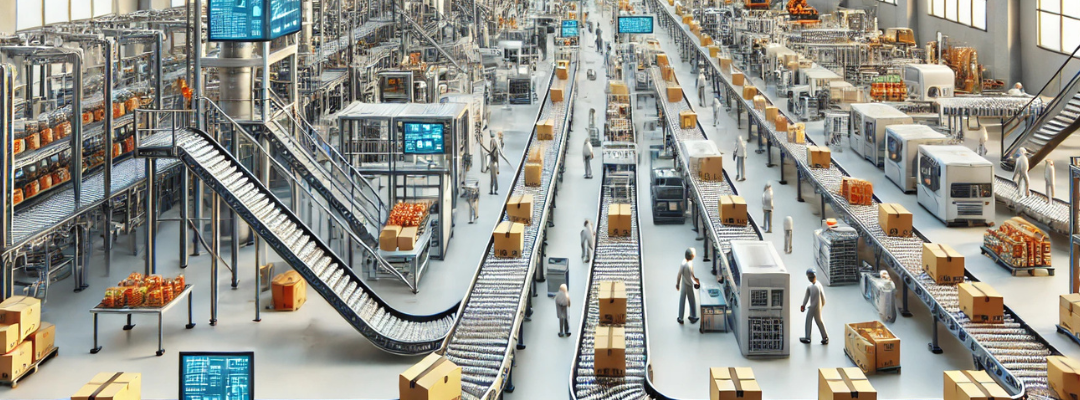In today’s fast-paced industrial landscape, efficiency, accuracy, and safety are key factors that determine business success. Conveyor systems have transformed material handling, allowing industries to streamline production, reduce operational costs, and improve workplace safety.
From automotive manufacturing to food processing and e-commerce logistics, businesses worldwide are leveraging conveyor automation to stay competitive. Here’s a detailed look at the top 10 benefits of using conveyor systems in modern industries.
Increased Productivity with Automated Material Handling
Manual transportation of materials can slow down operations and lead to inconsistencies. Automated conveyor systems eliminate bottlenecks, ensuring a continuous flow of materials, which is critical in high-demand industries such as manufacturing, warehousing, and logistics.
Cost Reduction Through Optimized Operations
By replacing manual handling with automated systems, businesses cut labor costs, minimize errors, and reduce product damage. While the initial investment in conveyors may seem high, the long-term savings on labor and efficiency far outweigh the cost.
Versatility for Various Industries & Materials
Today’s conveyors are highly adaptable—handling everything from fragile food items to heavy automotive components. Depending on industry needs, belt conveyors, roller conveyors, overhead conveyors, and modular conveyors offer specialized solutions.
Improved Workplace Safety & Compliance
Reducing manual material handling means lower risk of workplace injuries from lifting, carrying, or repetitive motion. Conveyor automation significantly improves safety in warehouses and production facilities.
Scalability for Expanding Business Operations
Unlike fixed transport solutions, modular conveyor systems allow businesses to scale their operations seamlessly. They can be easily reconfigured or expanded based on production demands.
Significant Time Savings in Production Cycles
Time is money in manufacturing and distribution. Conveyor systems transport materials and products faster than manual methods, reducing cycle times and boosting output.
High Precision & Accuracy in Material Handling
Modern conveyor systems integrate with robotic arms, AI-powered sensors, and automated sorting systems, ensuring flawless precision in handling, sorting, and placing items.
Energy-Efficient Solutions for Sustainable Operations
Newer conveyor systems are designed with low-energy motors, regenerative braking, and smart sensors to optimize power consumption. Eco-friendly conveyors contribute to corporate sustainability initiatives.
Reduced Downtime & Maintenance Costs
Modern conveyor systems are built with durable materials and predictive maintenance technology, preventing unexpected breakdowns and ensuring continuous operation.
Seamless Integration with Advanced Automation
In Industry 4.0, conveyor systems are no longer standalone machines—they seamlessly integrate with robotic systems, AI-powered analytics, and automated sorting technologies.

